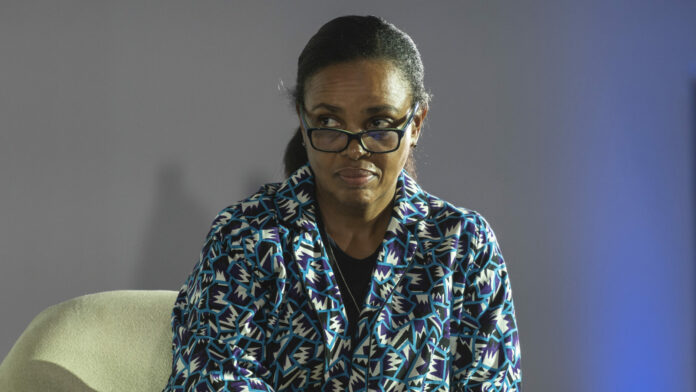
“THE iron lady who means business” is how Portia Derby was described in a news article in August 2020, eight months into her tenure as Group CEO of Transnet.
No doubt Derby had been handed a poisoned chalice: it would take a gargantuan effort to reverse the damage caused by years of corruption, maladministration and lack of maintenance that hollowed out the once-mighty rail, port and pipeline company, Transnet. After her two years at the helm, Transnet’s progress is questionable.
The state-owned entity will be quick to make a song and dance of its advances – progress with combating infrastructure theft to its railway lines, movement with establishing an independent ports authority, and the conclusion of the auctioning of 16 slots along the Gauteng-to-Durban line.
However, the auction only attracted two bidders and in the end only one was successful. The rest of the private sector was scared off by the restrictive terms of sale, which offered only a two-year lease period. The botched auction process is demonstration of how the South African government lacks the political will or skills needed to manage its state-owned entities.
Derby’s address at the Joburg Indaba mining conference in October last year further reinforced business’s perception of tone-deaf governance at South Africa’s state enterprises.
Instead of a constructive and conciliatory tone to address mining companies’ legitimate worries about the logistical nightmare that is Transnet subsidiary Transnet Freight Rail, Derby insisted Transnet’s strategic priority is to allocate new capacity on its iron ore, coal and manganese channels to emerging black miners to address historical imbalances.
It was a piece of off-the-bat policy-making (as it then appeared) that helped push the mining sector over the edge. In January it emerged that the Minerals Council had demanded Transnet’s board take action by sacking Derby and Sizakele Mzimela, the CEO of Transnet Freight Rail, the division directly responsible for bulk mineral transport.
Instead of this drastic action, the industry and the mining sector decided to form four work streams focused on each of iron ore, chrome, manganese and coal to see where performance could be improved. But the diktat on handing free capacity – equal to about two million tons – was untouched. In February, Transnet announced it had allocated spare capacity to several emerging miners.
It will get ugly for a while but at the end of the day there is growth in the economy if black people become real participants, especially in mining.
“We are pushing hard for inclusion. It is time we included black miners and farmers,” said Derby back in October. The iron lady is not for turning.
Derby hails from Pietermaritzburg in KwaZulu-Natal. She holds an honours degree in economics from the University of KwaZulu-Natal, and an MBA from Wits University.
She was a former chief operating officer at the Department of Trade and Industry, and a director general at the Department of Public Enterprises, the government entity responsible for Transnet. Derby was appointed group CEO of Transnet in January 2020.











